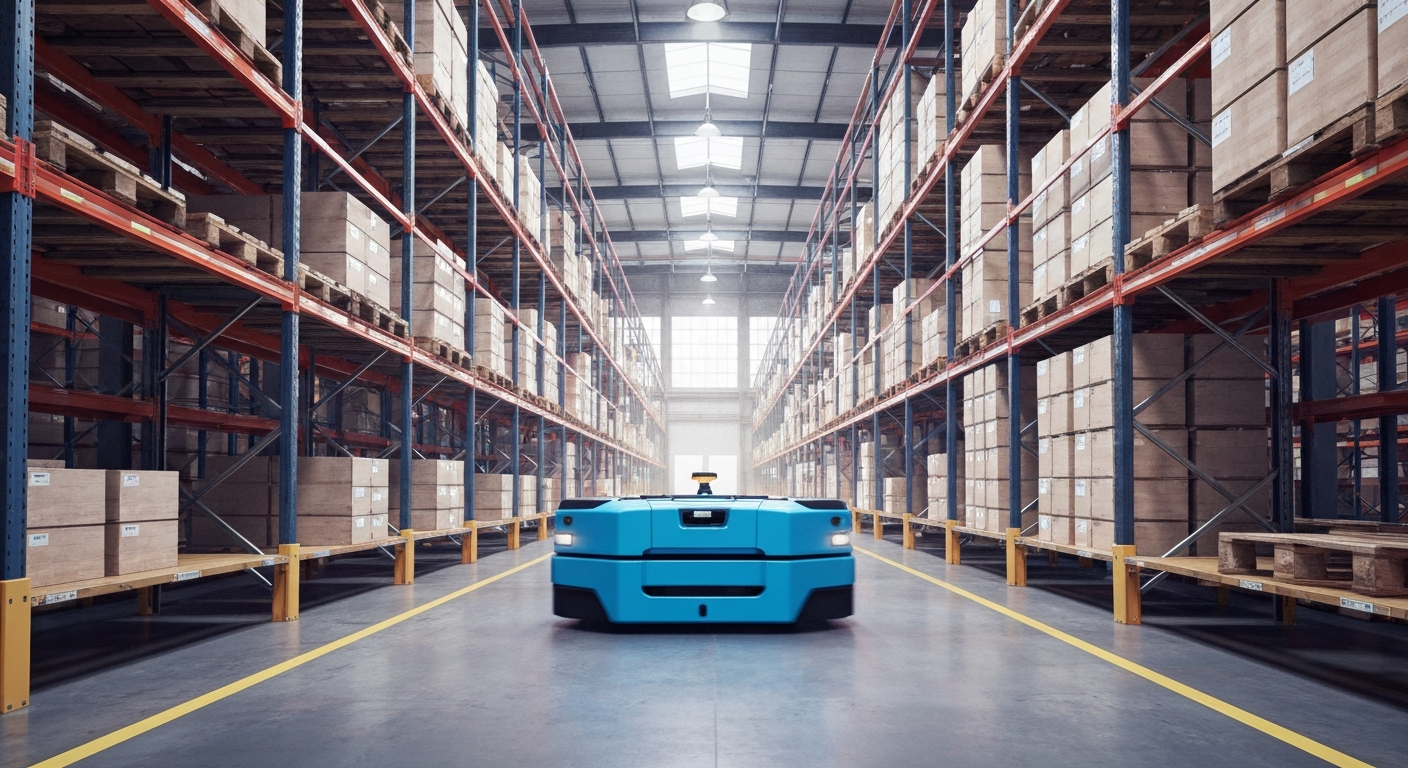Energy Data Management: Optimize for Better Efficiency
Energy Data Management: Optimize for Better Efficiency

Key Highlights
- Find out how energy data optimization is the key to making energy efficiency better in many industries.
- Get clear about the difference between energy management and energy data management, and know what each one will do.
- See the real ways that lower energy use and better work flow can give both environmental and money savings.
- Learn how new technology, like automation, sensors, and data analytics, can help make work smoother and help with sustainability.
- Know what you need for a strong energy data plan, starting from data collection to using dashboards.
- See how energy data optimization is very important to meeting sustainability goals and following the rules for regulatory compliance
Introduction
Energy data is changing the way many industries think about sustainability and operational efficiency. When companies collect and look at their energy data in the right way, they can make better decisions. This helps them save money and lower their effect on the environment. Nowadays, to stay ahead, being good at energy data optimization is not just helpful. It is a key thing needed for day-to-day work and for a strong future. Using tools like analytics and automation, energy data optimization helps businesses to follow their plans for profit and care for the earth at the same time. This sets everyone up for a better, greener future.
Comprehensive Guide to Energy Data Management Solutions
Understanding Energy Data Management Solutions

Energy data optimisation means making your processes better by using exact information about how much energy you use. With advanced technologies in place, businesses can now track, store, and look at all the energy usage in their systems. This helps them to make better choices using real data.
This way of working is the key to good energy management at a higher level. It helps to cut down on wasted energy and makes the operation run smoother. When you add in automation and real-time analytics, it's easier to get the most out of your energy usage. Energy data optimisation is a crucial element for any industry today that wants to be more efficient and work towards greater sustainability.
What Is Energy Data and Why Does It Matter?
Energy data is the detailed information you get on how energy is used in systems, equipment, or production lines. It is important that this data be accurate. Gathering energy data with new tools or methods helps to build strong energy plans. Without the right data, it’s very hard for any business to spot where it is wasting energy or come up with good ways to fix problems.
By looking closely at energy data, you see how your business uses energy. This tells your organisation more about its energy use and helps it make better choices for the future. These choices matter for sustainability. With energy data, you can track busy times or spot equipment that is out of date. These insights help you make changes that can improve your company’s bottom line.
When you miss chances to improve your energy use, you often pay more. With better and more up-to-date energy data collection, businesses can see where things are not working well. This lets you fix problems, stay away from fines for not following rules, and put your time and money where it counts most for both the environment and your profits.
Key Differences Between Energy Management and Energy Data Management
Energy management and energy data management work hand-in-hand but differ in focus and methodology. While energy management targets broader goals related to sustainability and regulatory compliance, energy data management zeroes in on the collection and analytical interpretation of energy metrics.
| Energy Management Energy Data Management | Energy Management Energy Data Management |
|---|---|
| Proactive monitoring and control of energy consumption. | Systematic collection and analysis of energy consumption data |
| Focuses on reducing resource use and boosting efficiency. | Aims to provide actionable insights based on real-time or historical data |
| Involves implementing strategies, including renewable energy integration. | Employs advanced analytics and dashboards to create data-driven solutions |
| Promotes operational efficiency and environmental sustainability. | Finds inefficiencies in energy usage for immediate correction. |
By understanding these differences, businesses can integrate both approaches effectively, ensuring operational efficiency and long-term sustainability.
The Importance of Optimizing Energy Data
Optimising energy data can help businesses in many ways. It brings down costs and makes energy use better. Companies use the right, up-to-date data to study how they use energy. This helps them spot waste and fix problems. Over time, these steps can lead to smaller energy bills and bigger savings.
There is more to it than just saving money. Working smart with energy data also helps with sustainability. It lets businesses handle new rules and make the most of the resources they have. If a business wants to keep up with changes around the environment, it must focus on energy optimisation. This is key for running well and acting responsibly.
Environmental and Economic Benefits
Energy data optimisation brings clear wins for both the environment and the economy. Here’s how:
- Environmental Benefits: Use less energy to cut your company’s carbon footprint. Data analytics helps you lower greenhouse gas emissions and keep things good for nature.
- Economic Benefits: When you optimise your energy data, you will spend less on energy costs. Looking for ways to remove waste and picking scalable technologies means you can save money every month.
- Sustainability: Matching your energy use goals with rules set by others helps you follow laws and boosts how people see your business.
If you support your plan with solid data analytics, you can get more out of each area your company works in. This opens the door to new ideas. The businesses that care about both the earth and their own profits will go further and have a better chance to keep doing well over time. When you pair growth and sustainability, everybody wins.
Impact on Sustainability Initiatives
Energy data optimisation is a key part of working towards sustainability and meeting compliance standards. When there is transparency in energy consumption, businesses can see where they need to make changes to lower their carbon footprint. Using analytics and dashboards can help people make good choices, so their companies stay committed to the environment for a long time.
There are organizations that want to reach sustainability goals and they often aim for well-known certifications like ISO 50001. Having accurate data collection makes it much easier to follow rules and get regulatory compliance. When businesses do this, they also improve the way people inside and outside the company see them and show that they follow global sustainability standards.
Even more, adding energy data tools into daily work helps guide the company to act in the right way when it comes to using resources, and it also pushes people to come up with new ideas. By making sustainability a normal part of how they work, companies can lower their impact on the environment and also keep their finances healthy over the years.
Essential Components of an Effective Energy Data Strategy
A strong energy data plan needs good technology, analytics, and the right tools to get the best results. The best plans start with good data collection methods. These use both old data and live numbers. When you use accurate data, and clear dashboards, it becomes simple to look at and understand everything.
Parts like detailed reports help businesses check the important details all the time. If you use steps like double-checking (validation) and automatic work, it gets easy to make new solutions you can grow and fit into your systems. With a good strategy, your energy data turns into things you can use to make better choices and move your business ahead.
Data Collection, Validation, and Analysis
Data is important when you want to get the best use of energy. Every part of the process matters a lot:
- Collection: Use modern sensors and smart meters. These tools help to always track energy consumption in all production systems.
- Validation: Make sure the data you get is right by checking patterns against old reports or calibration. This helps spot any errors.
- Analysis: Use data analytics to find waste or forecast energy use by looking at real-time energy consumption.
With dashboards that bring all the information together, trusted data makes it easy to see where to focus on new changes for better sustainability.
Leveraging Technology and Automation Tools
Today, new technologies are changing how we work with energy data.
- Sensors: These work in many places to collect data about the systems. They can check things deeply. The sensors can spot changes in real time. If something goes past a set limit, the sensors tell us right away. This is important to keep everything running well.
Conclusion
Making the most of energy data management can give companies many good results, like better efficiency and lower costs. When you use smart data analytics and watch real-time information, you can make work run smoother and also follow the rules. By using a systematic collection and the correct interpretation of energy data, there is a way to improve equipment performance and work toward long-term sustainability goals.
Having the right tools, like dashboards for more transparency and sensors that give accurate data, helps a company get better at energy consumption optimization. This will help the company’s bottom line and help it build energy strategies that can grow as the company gets bigger.
Frequently Asked Questions
How can businesses start optimizing their energy data?
To begin with energy data optimization, a business needs to look at how it uses energy now. Next, it should use smart meters for real-time data collection. By looking at this data, the business can find what is not working well. It can then make changes based on what it finds. With constant checking and new plans as needed, energy management will get better and costs will go down.
What technologies are most effective for energy data optimization?
Effective ways to make better use of energy data use advanced analytics, smart AI tools, IoT devices that watch energy use in real time, and cloud computing for better data management. These tools help people and companies make better choices, cut down on waste, and boost energy efficiency in many areas. This kind of optimization lets them get more good results from the data.
How does energy data optimization support sustainability goals?
Energy data optimization helps us support sustainability in a few ways. It lets people manage resources better, cut down on waste, and lower their carbon footprint. By using data analytics in real-time, organizations can watch how they use energy, spot patterns, and find ways to do things in a smarter way. This also helps them make choices that fit with their environment goals and follow the needed rules. By focusing on optimization and understanding their energy data, they can work towards being more green and responsible.
What industries benefit the most from energy data optimization?
Industries like manufacturing, transportation, and utilities can get a lot from energy data optimization. These sectors use data analytics to work better, lower what they spend, and cut down harm to the environment. With analytics and smart planning, they make sure their actions help for many years. This way, the business grows and stays good for the future.



